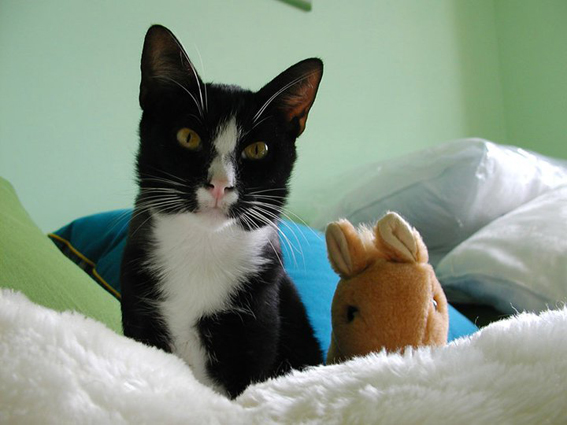FeLV
- Details
- Category: Cat diseases
- Hits: 439

FeLV, feline leukemia, is a very serious highly contagious disease. It is a tumor of the bone marrow cells. The agent of this disease is a virus of the Retrovirus family, among which there is also the virus responsible for FIV.
The virus is transmitted from cat to cat through infected body fluids:
A) The saliva
- Following bites in combat;
- Through mutual cleaning
- The sharing of food
- Drinking from the same bowls of water.
B) Breast milk
- Following the intake of breast milk.
C) Seminal fluids
- Through coupling
D) The blood
- Following bites in combat;
E) urine.
Through contact with infected urine
The virus is fragile in the external environment and is taken eliminated by atmospheric agents and by detergents and disinfectants.
Some FELV positive cats manage to become immune by eliminating the virus spontaneously (run 2 tests for FELV 6-8 weeks apart to make sure of actual chronic infection). The others who unfortunately have not developed immunity fall ill with FELV. The virus that has entered the body affects the bone marrow, where blood cells and immune defenses are produced.
To protect our FELV positive cat it is necessary to carry out periodic checks and specific examinations by the veterinarian, to prevent other diseases from arising, given the fragility of the immune system.
Unfortunately, there is still no cure for FeLV.
In any case, a cat with FELV can have a good quality of life:
A) with a healthy and controlled diet;
B) with a thorough cleaning of the environment (keeping it hygienic)
C) checking for the presence of gastro-enteric ectoparasites or parasites
D) with periodic veterinary visits every six months (in order to be able to intervene early on possible alterations in his state of health)
It is very important to diagnose any secondary infections of the various systems as soon as possible in order to be able to treat them specifically. We should protect our FELV positive cat by limiting exposure to contact with other cats that could transmit other diseases and also to prevent other cats from becoming infected with FELV.
It is important for the owner to check for the appearance of faucitis or stomatitis (infections of the oral cavity) because it is one of the symptoms of the infection and to check the cat's weight.
In any case, the most effective treatment against this disease is certainly prevention through sterilization and vaccination.












